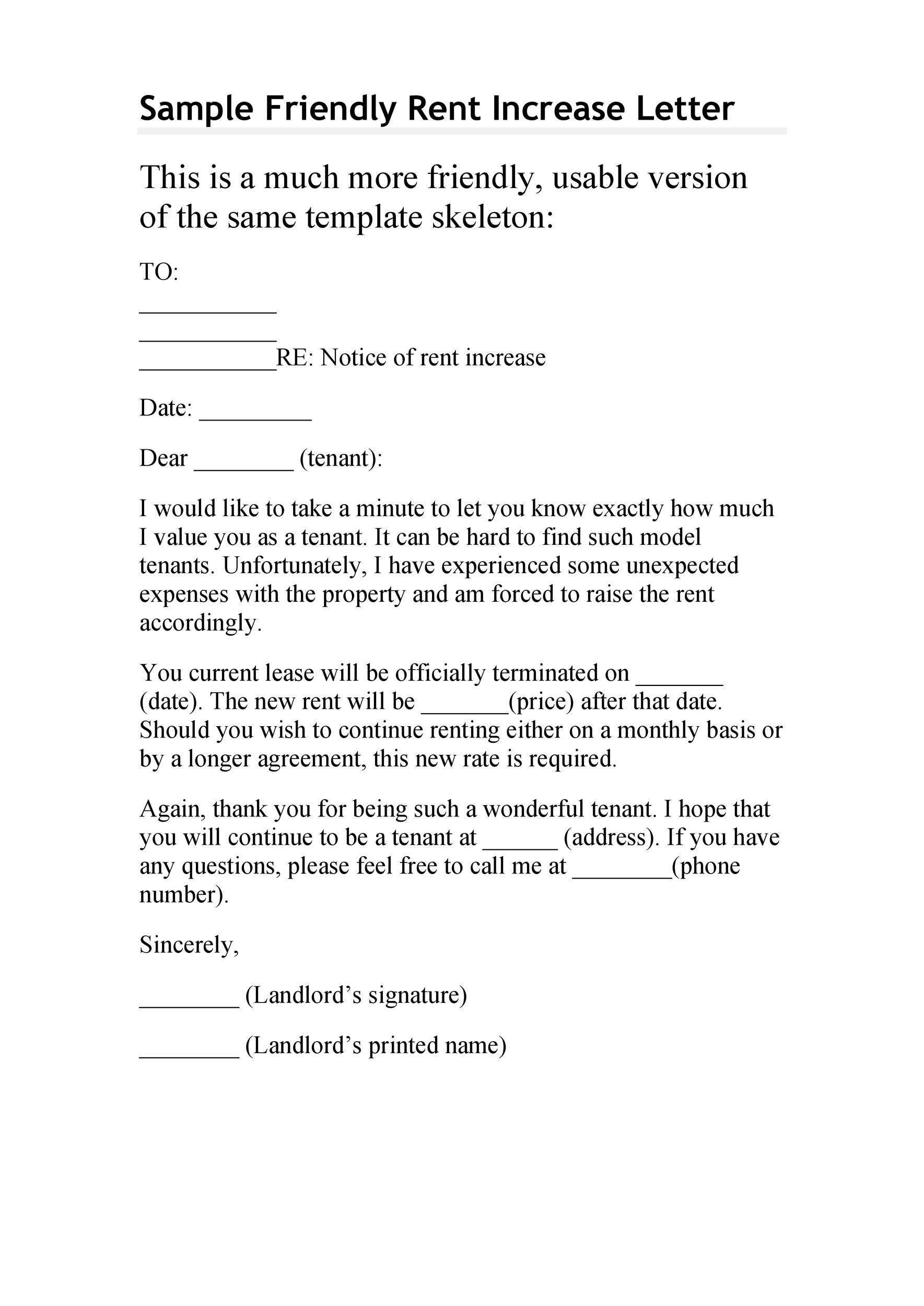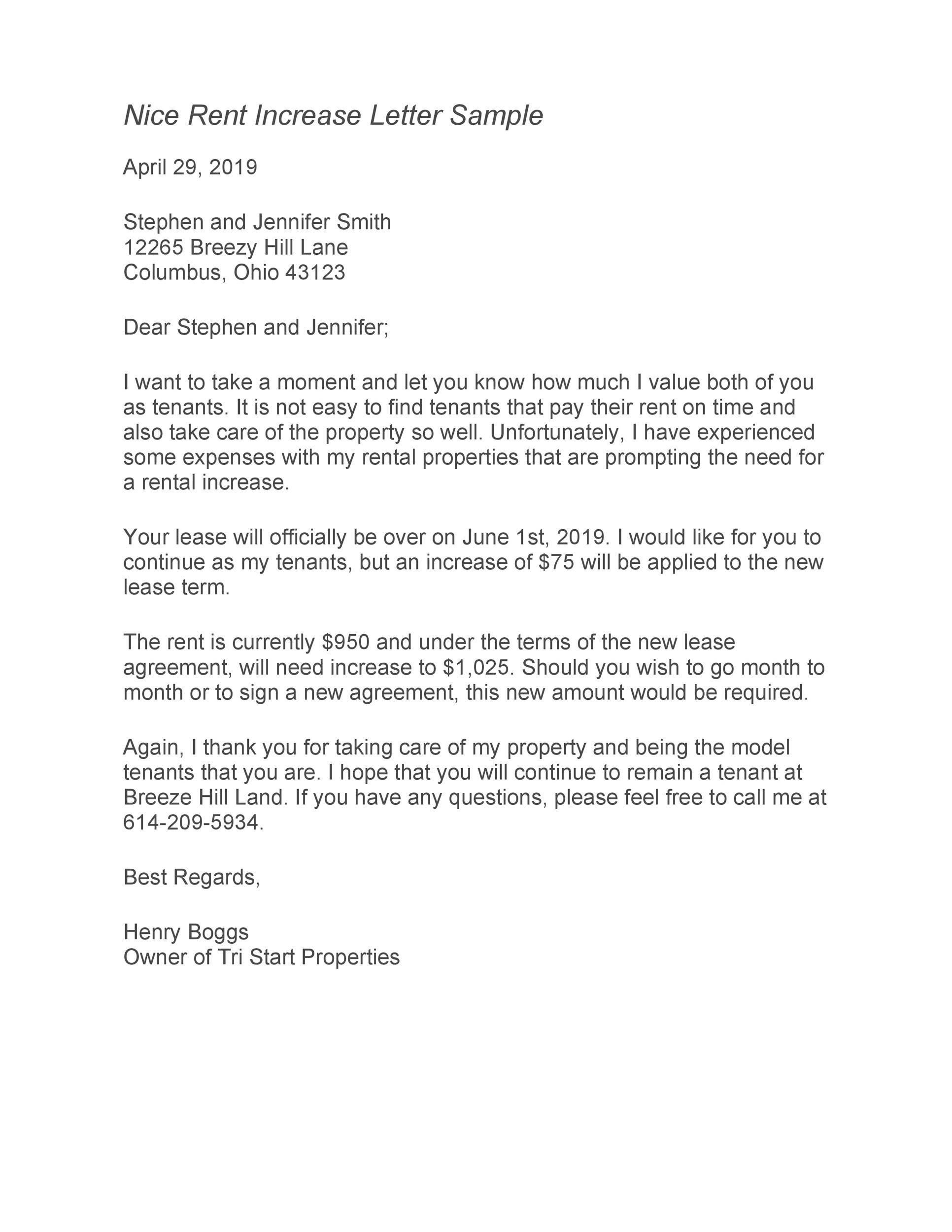Rent Increase Letter to Tenants: Best Practices & Sample Format
Rent Increase Letter to Tenants: Best Practices & Sample Format
Blog Article
Lease increases can be a sensitive matter, but they are usually required to maintain with rising property prices and market conditions. For landlords, giving that information respectfully and appropriately is vital to sustaining a positive relationship with tenants while meeting your economic goals. Crafting a well-structured letter to raise rent example can move a considerable ways in ensuring visibility, reducing misconceptions, and fostering trust.
Why Correct Conversation Issues
Tenants are often wary of book walks, and the method that you communicate that change may significantly affect their reaction. An obvious and respectful rent improve letter assists tenants realize the reason behind the decision and illustrates mutual respect. Bad interaction, on the other hand, may result in tenant discontent, disputes, as well as early lease termination.
Data Insight: A recent report by The Pew Charitable Trusts suggests that almost 43% of renters be concerned about affordability when faced with quick rent increases. That highlights how vital it is for landlords to approach these conversations carefully.

Key Components of a Lease Increase Letter
When drafting your book improve page, including the next components can make the procedure easier for equally events:
1. Handle the Tenant By Name
Generic greetings will come down as impersonal. Always use the tenant's name in the beginning of the letter to make it feel personalized and considerate.
2. State the Intent behind the Letter
Be primary and upfront. Note that the letter is approximately a rent adjustment early on. That assures there's no confusion in regards to the message.
3. Supply a Reason
Describe the explanation for the increase. Frequent justifications contain climbing electricity expenses, house preservation, or aiming the rent with the current market rate. Openness helps tenants understand the prerequisite of the change as opposed to feeling blindsided.
Case: "As a result of increased house maintenance and application costs, we have analyzed the present rent and determined a change is necessary."
4. Establish the New Book Volume and Efficient Date
Obviously outline just how much the book increase and when the modify will require effect. Most jurisdictions need at the very least 30 to 60 days' detect, so guarantee you conform to the laws in your area.
Example: "Your new monthly lease will be $1,300, efficient on March 1, 2024."
5. Reaffirm the Terms of the Lease
Reassure your tenants that aside from the book adjustment, the phrases of the lease and all other policies stay unchanged.
6. Invite Questions
Inspire open transmission by welcoming tenants to touch base with issues or concerns. That shows a readiness to work collaboratively and handle any issues.
Case: "When you yourself have any issues or considerations regarding that adjustment, please don't wait to get hold of people at [contact information]."
Data to Consider When Increasing Book
When determining the rate of raise, contemplate statistical trends in your neighborhood housing market. Like:
In accordance with Zillow's 2023 knowledge, the national average lease increased by 6.2% from the last year, with some cities viewing double-digit growth.
Study by Rent.com unearthed that tenants are more prone to take book raises of less than 5%, whereas increases above 10% often lead to higher turnover rates.
By leveraging information, you are able to implement a fair improve that amounts profitability with tenant retention.

Final Notes for Landlords
Always consult regional and state regulations regarding lease increases before notifying tenants. Regulations may possibly dictate the most allowable raise, the mandatory notice time, and how a notice should be delivered.
Sustaining professionalism and concern in your book raise letter may maintain a healthy landlord-tenant relationship. Distinct conversation, coupled with affordable modifications, guarantees your tenants realize and respect the changes. Remember, your tenant's pleasure impacts preservation, and pleased tenants are significantly more prone to keep long-term.
Report this page